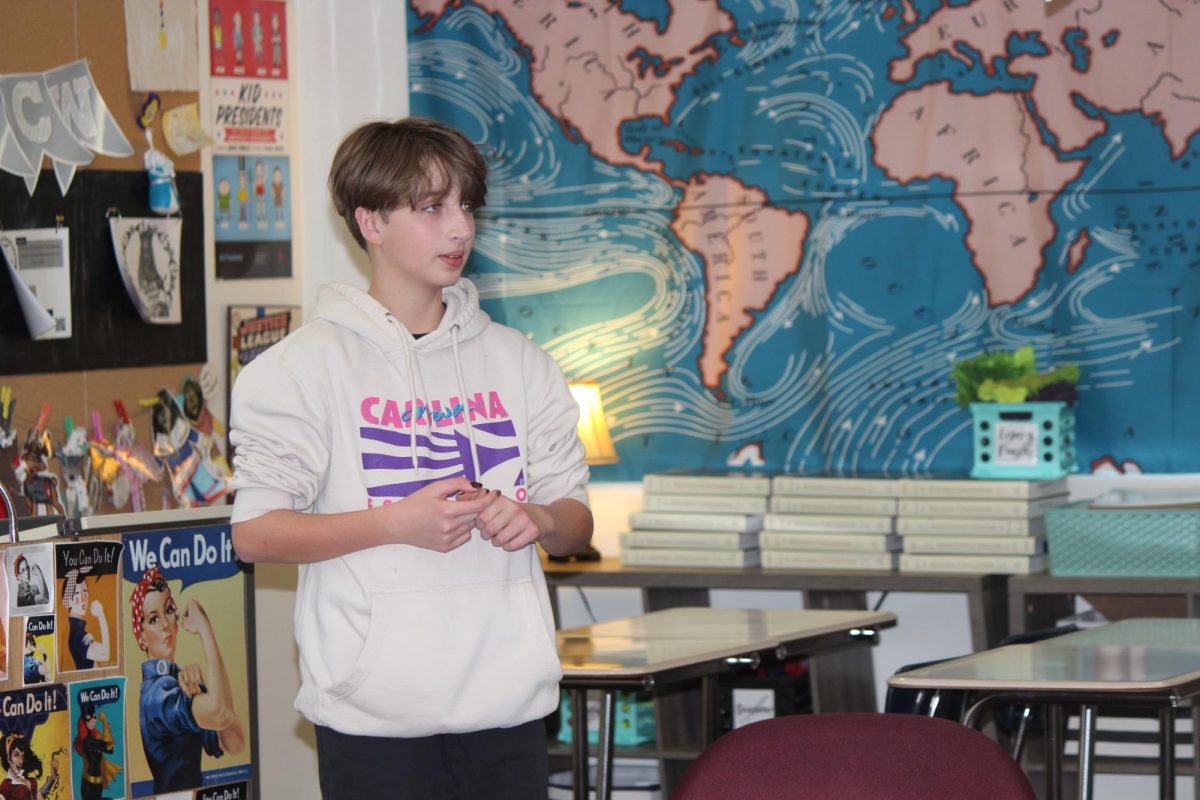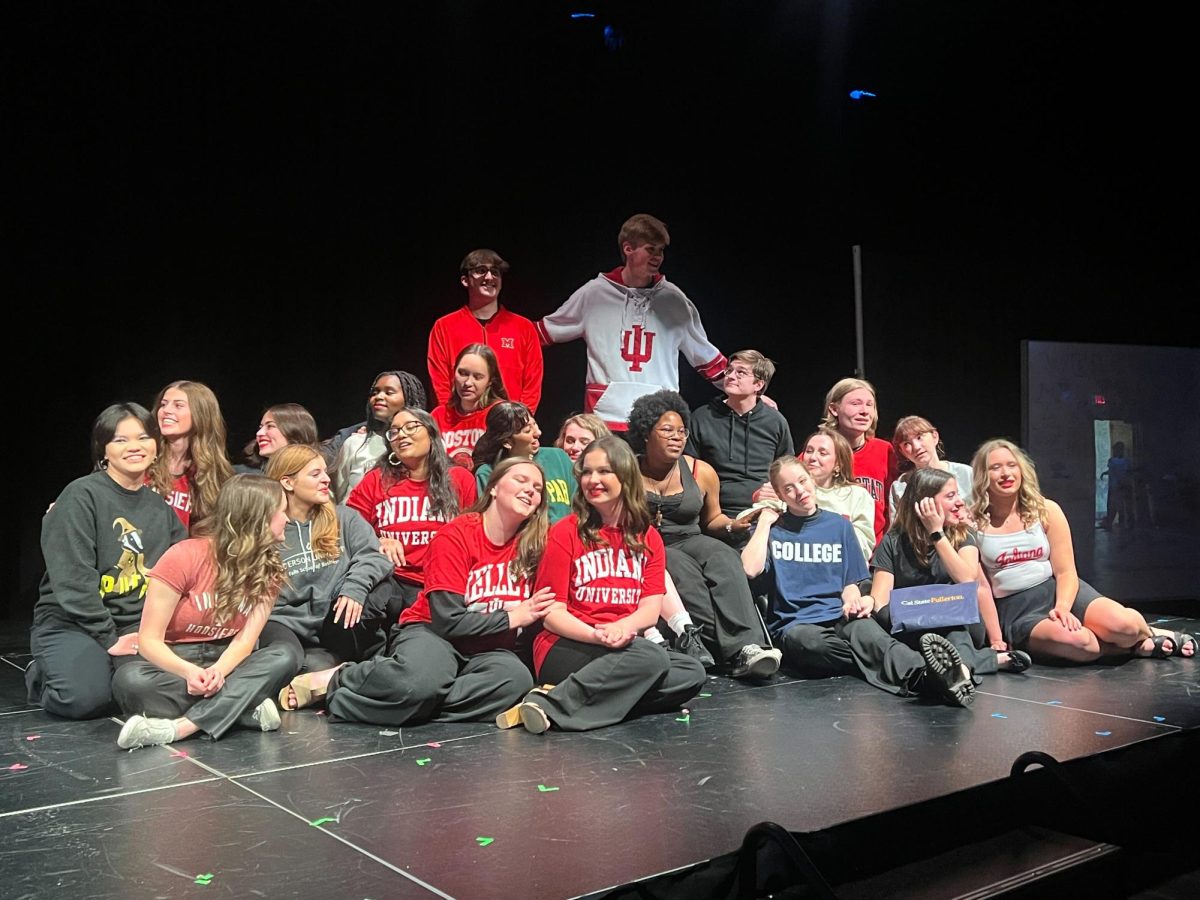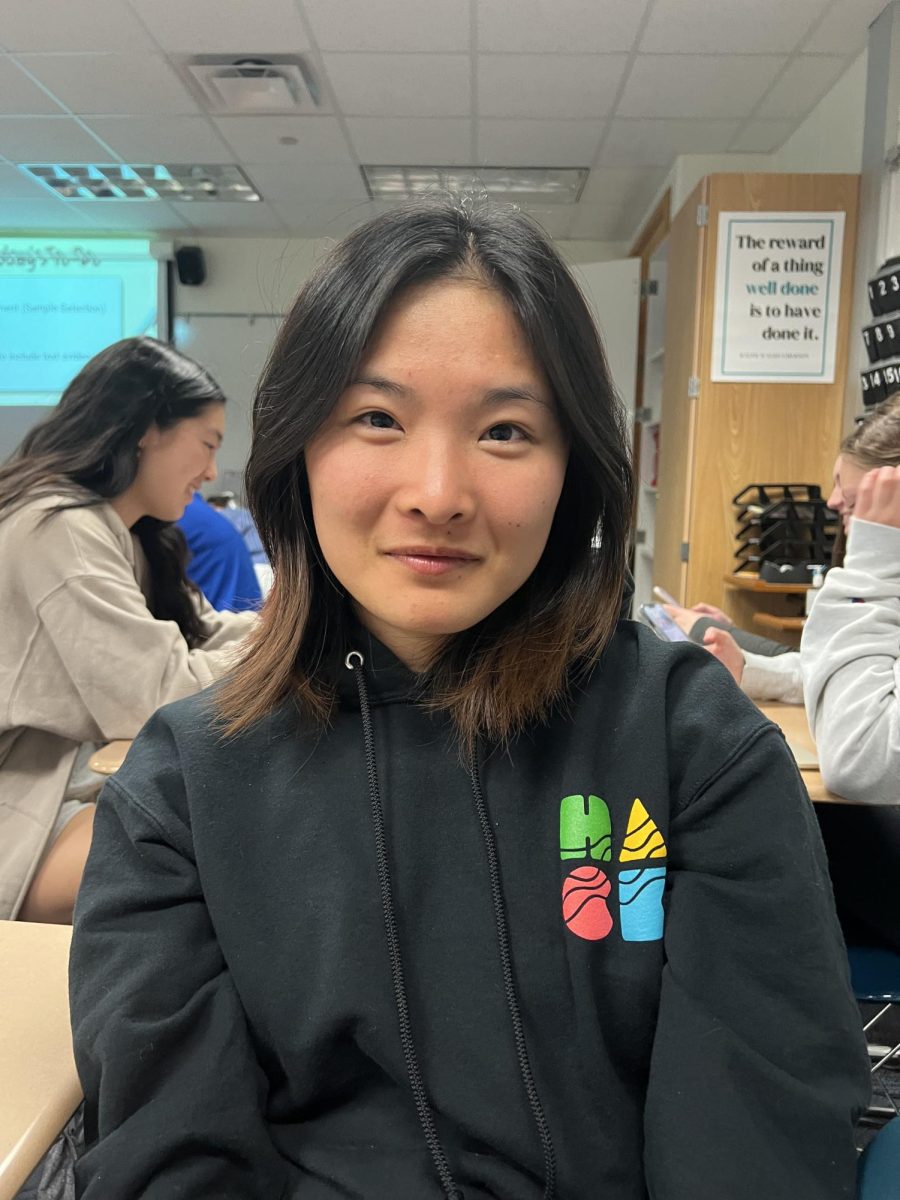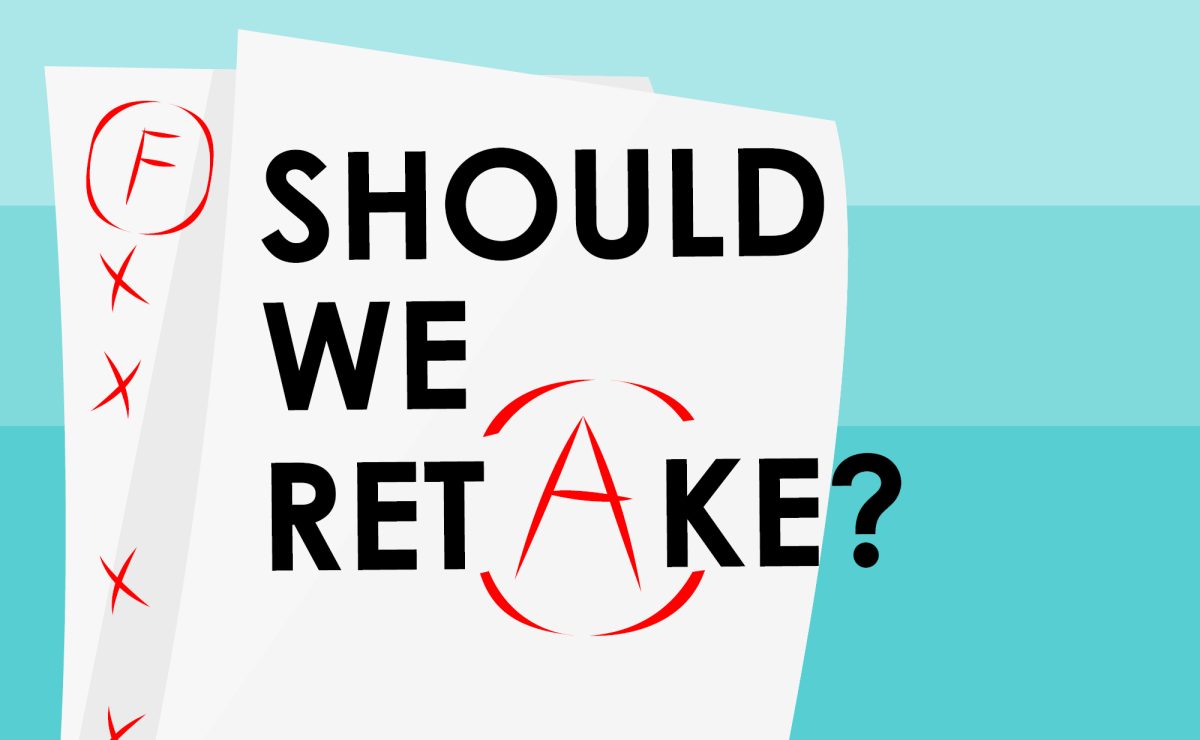Students grieve the loss of a loved one differently than adults, each other

By Laura Peng
<[email protected]>
On July 2, 2009, junior Samantha Clark was at a retreat with her youth group at the Outer Banks in North Carolina when she received a call from her uncle; it was a call that changed her life. At age 16, Samantha lost her father, Curtis Clark.
“I just remember I dropped the phone out of my hands and fell on my knees,” Samantha said. “All of my friends came over and held me and comforted me and cried with me. We prayed right there.”
Samantha is not alone in her loss. According to the U.S. Census Bureau, approximately one in 20 children in the United States lose a parent to death before reaching the age of 18.
And these statistics have increased significantly during the past eight and a half years since the beginning of the wars in Iraq and Afghanistan. As a result, there has been an increase in the number of teenagers, like Samantha, who must deal with the loss of a loved one.
According to Carol Braden, the executive program director at Brooke’s Grieving Place for Young People in Indianapolis, teenagers often grieve differently than adults.
“Young children and teens are supposed to grieve differently than adults,” Braden said. “A 5-year-old can only grieve as a 5-year-old would, and a 15-year-old can only grieve as a 15-year-old would. It’s different for everyone, but almost all teens show it very differently than adults.”
“Our feeling of safety gets really rocked when we have somebody die in our life, and a child or a teen is just learning how to feel safe and learning about themselves,” Braden said. “When grief impacts them, there is a lot going on. Some teens love to talk, so when they grieve, they want to talk through that process. Others do a lot more of their grieving in their play. Sometimes teens resort to risky behavior, others do not. Some might journal, paint, hang out with friends or watch scary movies. Regardless, young children and teens can only take in the depth of pain so much.”
Samantha said she coped with the death of her father by speaking with friends and family members who were able to relate to her loss.
“My pastor took me back to the house we were staying at, and there were a couple of the adults on the trip who talked to me and comforted me and told me stories,” Samantha said. “That really comforted me a lot. When I got home, a bunch of people were at my house sitting on my porch. My family was there. All of my friends were there. Everyone was talking to me. It was kind of overwhelming. It was around the time of the Fourth of July, so my friends took me to CarmelFest and hung out. I tried to live my life a little bit normally, but it was still hard to get my mind off of it.”
Samantha said she looks to photographs for comfort as well.

“My parents divorced when I was in the first grade, and I always considered myself to be a daddy’s girl in a way, so it’s weird for me to talk about it with my mom,” Samantha said. “Looking at pictures reminding me of the good times helps. I wrote a note on a back of a picture of me and him a couple of days after the funeral and put the picture by his gravesite. I have pictures of him everywhere. There’s one where he was holding me when I was a baby, and he was a smiling and looked extremely happy. My mom said when I was born, he was the happiest she had ever seen him. Seeing him be happy makes me happy.”
Braden said teenagers should receive support when grieving the death of a loved one in order to avoid an unhealthy outlook on life as an adult.
“I can’t tell you how many adults I have met who told me that they were 10 when their mom died or 15 when their brother died, and they were never allowed to even speak their names and how that has greatly impacted them,” Braden said. “How it impacts a person differs, but the common thread is that when we don’t get grief support, it impacts our relationships: our relationships with ourselves, our relationships with people or our relationships with our spirit.
“But it’s never too late to get support,” Braden said. “It could be 20 years later. Sometimes adults don’t really work through losses. It will carry over into relationships now. Some become very distant or angry or even violent. Others may become overly nice. It can go one extreme to the other because you still feel like that 15-year-old. Without grief support, you will always feel the age you were when that loss happened. With support, you learn how to be who you are, and you learn how to be present in the world with your relationships.”
Braden said organized bereavement programs similar to Brooke’s Grieving Place for Young People allow teenagers to cope with death in multiple ways.
Although Samantha said she has never attended an organized bereavement program, she considers it yet another method for teenagers to deal with the death of a close friend or family member.
“I don’t usually open up to strangers, but maybe it could open my eyes to views that others have, or maybe my views could help them,” Samantha said. “Even if I went to one of those right now, it could still help me. It wasn’t that long ago.”
Braden said, “It’s a safe place for a child of any age to really get what they need from a grief journey. It’s a place where you know you’re not alone. There are others going through the death of somebody important to them. If you want to talk, you can. People will listen to you, and they’re not going to judge you. But you can also not say a word and be accepted at the same time. It’s a really safe place to rebuild the safety that you don’t feel anymore.”
However, Braden said that organized bereavement programs are not appropriate for everyone.

She said, “Even though I’ve been here for over 10 years, and I really believe in this model, I’ve met with hundreds and hundreds of people, and what some people have taught me is that this isn’t what they need. They might need to meet with somebody one on one or within a family. Although I’ve seen a lot of impact with a lot of people, it’s not for every single person.”
Junior Robert Clark, who lost his father at age eight, Richard Clark, said he attended Camp Healing Tree as a child but personally found it ineffective.
“It was specifically targeted for kids who had lost a parent, but looking back, it didn’t really help,” Robert said. “It was just like another camp. There were a lot of group activities. Everything was team building and trying to bring people closer together, but it didn’t really do anything special. It was fun though. I think it was more of a way to get your mind off of it.”
Robert said he preferred speaking to his pastor about his loss.
Braden said, “I would say from one moment to the next, listen to what you need. No one knows what we really need when we are pounded by grief until sometimes that moment. But really listen to yourself. If you want to meet with a grief counselor, call Brooke’s Place. But as we mentioned before, that’s not for everybody. Our needs get met in all different ways. Be in tune to yourself at each moment and know that how you’re grieving is okay no matter what it looks like.”


















































![Review: “Suits” is a perfect blend of legal drama and humor [MUSE]](https://hilite.org/wp-content/uploads/2024/04/unnamed-1.png)
![Chelsea Meng on her Instagram-run bracelet shop [Biz Buzz]](https://hilite.org/wp-content/uploads/2024/04/IMG_2446-1200x838.jpg)
![Review: Quiet on Set: The Dark Side of Kids TV is the long awaited exposé of pedophilia within the children’s entertainment industry [MUSE]](https://hilite.org/wp-content/uploads/2024/04/unnamed.jpg)
![Review: “The Iron Claw” cannot get enough praise [MUSE]](https://hilite.org/wp-content/uploads/2024/04/unnamed.png)
![Review: “The Bear” sets an unbelievably high bar for future comedy shows [MUSE]](https://hilite.org/wp-content/uploads/2024/03/unnamed.png)
![Review in Print: Maripaz Villar brings a delightfully unique style to the world of WEBTOON [MUSE]](https://hilite.org/wp-content/uploads/2023/12/maripazcover-1200x960.jpg)
![Review: “The Sword of Kaigen” is a masterpiece [MUSE]](https://hilite.org/wp-content/uploads/2023/11/Screenshot-2023-11-26-201051.png)
![Review: Gateron Oil Kings, great linear switches, okay price [MUSE]](https://hilite.org/wp-content/uploads/2023/11/Screenshot-2023-11-26-200553.png)
![Review: “A Haunting in Venice” is a significant improvement from other Agatha Christie adaptations [MUSE]](https://hilite.org/wp-content/uploads/2023/11/e7ee2938a6d422669771bce6d8088521.jpg)
![Review: A Thanksgiving story from elementary school, still just as interesting [MUSE]](https://hilite.org/wp-content/uploads/2023/11/Screenshot-2023-11-26-195514-987x1200.png)
![Review: When I Fly Towards You, cute, uplifting youth drama [MUSE]](https://hilite.org/wp-content/uploads/2023/09/When-I-Fly-Towards-You-Chinese-drama.png)
![Postcards from Muse: Hawaii Travel Diary [MUSE]](https://hilite.org/wp-content/uploads/2023/09/My-project-1-1200x1200.jpg)
![Review: Ladybug & Cat Noir: The Movie, departure from original show [MUSE]](https://hilite.org/wp-content/uploads/2023/09/Ladybug__Cat_Noir_-_The_Movie_poster.jpg)
![Review in Print: Hidden Love is the cute, uplifting drama everyone needs [MUSE]](https://hilite.org/wp-content/uploads/2023/09/hiddenlovecover-e1693597208225-1030x1200.png)
![Review in Print: Heartstopper is the heartwarming queer romance we all need [MUSE]](https://hilite.org/wp-content/uploads/2023/08/museheartstoppercover-1200x654.png)
























![Review: Ladybug & Cat Noir: The Movie, departure from original show [MUSE]](https://hilite.org/wp-content/uploads/2023/09/Ladybug__Cat_Noir_-_The_Movie_poster-221x300.jpg)

![Review: Next in Fashion season two survives changes, becomes a valuable pop culture artifact [MUSE]](https://hilite.org/wp-content/uploads/2023/03/Screen-Shot-2023-03-09-at-11.05.05-AM-300x214.png)
![Review: Is The Stormlight Archive worth it? [MUSE]](https://hilite.org/wp-content/uploads/2023/10/unnamed-1-184x300.png)

